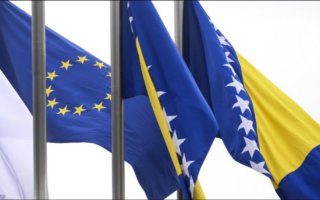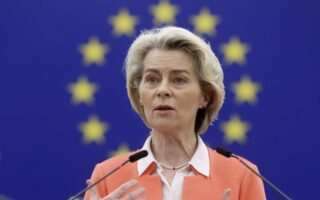World Bank sees Western Balkan economies growing but reforms needed

Economic growth in the six Western Balkan countries is projected to rise 3.2% this year and 3.5% in 2025, going back to pre-pandemic averages but still too low for faster convergence with the European Union, the World Bank has said in a report.
The growth in 2023, driven mainly by consumption and trade, slowed to 2.6% from 3.4% in 2022, reflecting the impact of a weak economy in the European Union, a Western Balkans key trading partner.
In its biannual report for the region comprising Albania, Bosnia, Kosovo, Montenegro, North Macedonia and Serbia, the bank increased the growth projection for 2024 by 0.2 percentage point from previous reports, citing cautious optimism that the region has weathered shocks since the Covid-19 pandemic.
But it warned about remaining risks of weaker investment and trade with the eurozone that are linked to a persistent weakness in global growth, as well as about possibilities of flare-ups in geopolitical tensions, outward migration, electoral uncertainty and persistent inflation.
Inflation rates in the region fell significantly from 14.3% in January 2023 to 5.1% in December 2023 but with differences in the pace of price deceleration, with inflation in December 2023 ranging from 2.2% in Bosnia and Herzegovina to 7.6% in Serbia.
The bank said the region, where GDP per capita remains at almost 40% of the EU average, must implement a range of reforms to narrow the development gap with the EU.
All six countries want to join the EU but the pace of their accession to the bloc differs.
“The Union’s new Growth Plan for the Western Balkans presents an opportunity to stimulate economic development through reforms and investments, particularly in the green economy,” said Xiaoqing Yu, World Bank country director for the Western Balkans.
Xiaoqing was referring to the EU’s €6 billion plan that would provide a mixture of resources for critical infrastructure investments, as well as an impetus for structural reforms to help the region improve integration with the single market by reducing border clearance times and modernizing payment systems.
The report said investing in the green transition and enhancing the livability of cities in the Western Balkans could also help reinvigorate regional growth. [Reuters]





